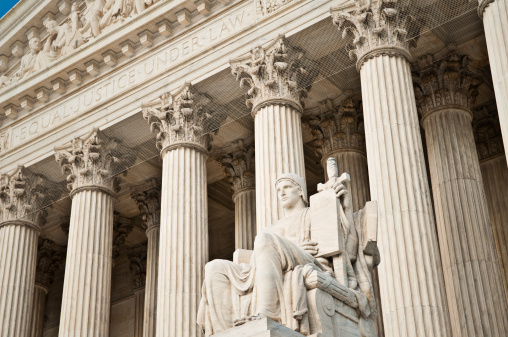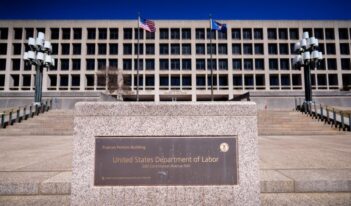
In its upcoming term, Supreme Court will decide key regulatory issues.
A Facebook rapper, a bearded prisoner, and a red grouper fisherman will all figure into a highly anticipated Supreme Court term that includes several cases that may affect the American regulatory landscape.
It remains to be seen whether the Court will take up high profile appeals on the Affordable Care Act, abortion rights, and marriage equality, but America’s highest court is already slated to rule on several important regulatory matters. These matters range from whether the Sarbanes-Oxley Act applies to fish disposal to whether American citizens born in Jerusalem have the right to list “Israel” as their birthplace on their passport.
In a decision that will likely reverberate throughout federal agencies, the Court will also decide whether an agency must formally publish a notice in the Federal Register and solicit public comment when changing its interpretation of one of its own regulations. At issue in Perez v. Mortgage Bankers Association are Department of Labor (DOL) regulations defining which employees have overtime and minimum wage rights. Until 2009, the agency maintained that mortgage loan officers were not among those protected. The DOL, however, now interprets those same regulations as including mortgage loan officers in overtime and minimum wage protections.
In changing its position, the DOL did not issue a formal notice or invite public comment. Instead, the DOL informally altered its interpretation of an agency regulation. The Court will decide whether it should have done so.
The Court will also determine whether another regulator, the Department of Transportation (DOT), unconstitutionally delegated any of its regulatory authority to a private entity, Amtrak.
In DOT v. Association of American Railroads, the Court will confront the Passenger Rail Investment and Improvement Act of 2008, which required the DOT to collaborate with Amtrak on rules to regulate the railroad industry. The Association of American Railroads, the membership of which includes major freight railroads in North America and even Amtrak, sued the DOT, arguing that it was unconstitutional for the DOT to delegate authority to a private corporation. The DOT contends that Amtrak’s involvement was merely advising on new regulations and that the agency did not delegate regulatory authority.
In another case, Yates v. United States, the Court will determine whether fish can be considered “tangible objects” under the Sarbanes-Oxley Act. A Florida Fish and Wildlife officer found a boat captain in possession of 72 undersized red grouper. Instead of following the officer’s orders to go ashore, the captain ordered his crew to toss the illegal haul overboard in an attempt to escape a fine.
Federal prosecutors charged the captain under the Sarbanes-Oxley Act, which Congress passed in 2002 to combat corporate crime. Among other things, the Act makes it illegal to destroy tangible objects in an attempt to obstruct justice. While the usual defendants charged under the Act are accused of shredding documents to cover up financial fraud, the Court will decide whether it also happens to cover unloading dead fish.
The Supreme Court has already heard oral argument in a case involving the Federal Trade Commission (FTC) in an action the Commission took against the North Carolina State Board of Dental Examiners. The State Board, a state licensing agency responsible for regulating dentistry in the public interest, forbid offering low-cost teeth whitening from shopping mall kiosks.
The FTC sued the State Board alleging it was acting as a trade group in violation of antitrust laws. In banning the kiosks, the FTC maintains that the State Board impermissibly barred competition from non-dentists.
In deciding whether the state regulatory board’s actions were actually anti-competitive, the Court must also confront whether a state agency can be so controlled by the profession it regulates that the agency is not considered a state actor immune from suit.
Finally, in Zivotofsky v. Kerry, the Court will decide a dispute that has divided Congress and the State Department for decades: whether American citizens born in Jerusalem have the right to list “Israel” as their birthplace on their passport. Congress favors designating Jerusalem as Israel, while the State Department has declined to follow suit, noting that Palestine also claims the city as its capital.
Under both the Obama and Bush administrations, the State Department has held that letting Congress decide the status of Jerusalem, even on passports, would interfere with the presidential power to conduct foreign affairs. Ignoring the executive branch, Congress passed legislation allowing Americans born in the city to list Israel as their birthplace. The State Department refused to follow through with the mandate and instead continues to list Jerusalem as a birthplace in these Americans’ passports.



